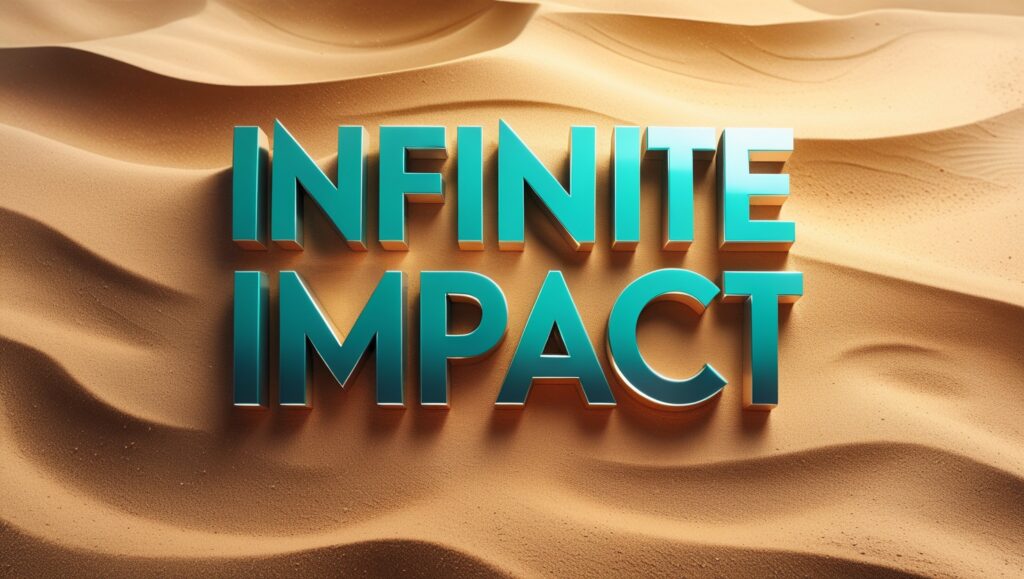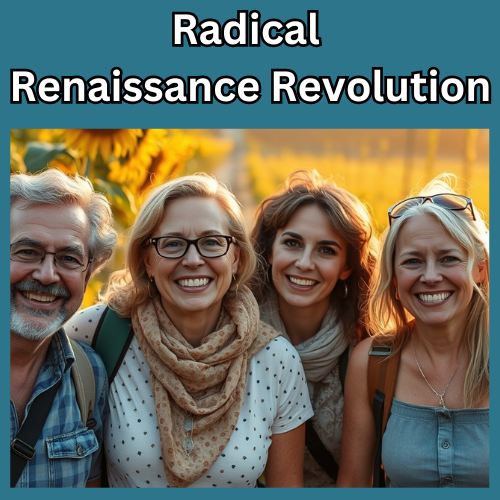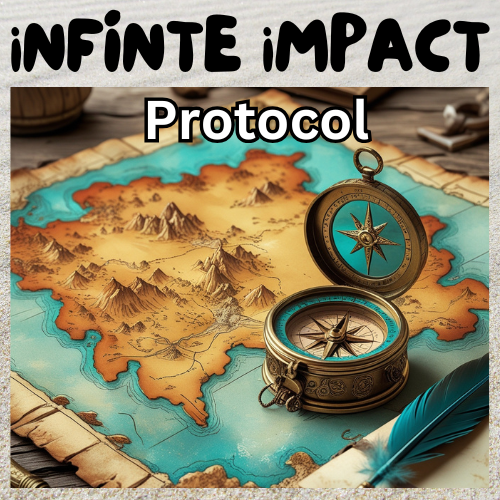“The way we communicate with others and with ourselves ultimately determines the quality of our lives.” — Tony Robbins
Introduction
Most people unknowingly let their relationships erode. Not in a dramatic, ghosting-your-best-friend kind of way. No, it’s more subtle than that. It’s the slow erosion of connection that happens when we get busy, distracted, or assume that relationships just “take care of themselves.” Spoiler alert: They don’t.
We’ve been sold a lie. We think influence and trust are built through grand gestures—closing a big deal, throwing an extravagant dinner party, or delivering an epic speech that has the room hanging on your every word. But in reality? It’s the small, seemingly insignificant moments that make or break our relationships.
Think about it. The boss who remembers your dog’s name? Instantly more likeable. The friend who sends a quick text after a rough week? Priceless. The colleague who gives you a knowing nod in a tense meeting? Feels like a lifeline. These aren’t random, throwaway interactions—they’re touchpoints, and they hold the secret to deep, lasting connections.
But here’s the problem: Most people don’t leverage them. They get caught up in the big-picture stuff and forget that true influence—whether in business, leadership, or personal life—is built one tiny touchpoint at a time. And those who master this? They don’t just build better relationships. They win at life.
So, if you’re ready to stop accidentally neglecting the people who matter most and start intentionally deepening your personal and professional relationships, keep reading. Because the secret to influence and connection isn’t about being louder, smarter, or more impressive. It’s about mastering the touchpoints in between.
What is a touchpoint?
In relationships, a touchpoint is any meaningful interaction or moment of connection between two people that strengthens their bond. These moments can be big or small and occur in various ways, such as:
- Verbal Check-ins – A quick “How was your day?” or a deep, heart-to-heart conversation.
- Physical Gestures – A hug, holding hands, or a reassuring touch on the shoulder.
- Shared Experiences – A weekly date night, a morning coffee ritual, or even watching a favourite show together.
- Acts of Kindness – A thoughtful note, a small surprise, or offering help without being asked.
- Digital Touchpoints – A sweet text, a voice message, or sending a funny meme that reminds you of them.
These touchpoints create emotional security and reinforce the relationship’s strength over time. The more consistent and meaningful they are, the stronger the connection between the two people.
Section 1: The Science Behind Touchpoints—Why They Work
Let’s talk brain chemistry (but in a fun way, I promise). Every time you have a positive, meaningful interaction with someone, your brain releases a little chemical cocktail—oxytocin, dopamine, and serotonin. Translation? Micro-moments of connection literally rewire people’s brains to trust you more.
Dr. John Gottman, the relationship guru, found that strong relationships—whether in business or love—aren’t built on grand, sweeping declarations. They’re built on small, consistent bids for connection. That means every smile, every quick check-in, every “I saw this and thought of you” text adds up to a stronger, more resilient relationship.
Still not convinced? Studies show that people who feel seen and acknowledged are more likely to cooperate, support, and stay loyal—whether that’s employees sticking with a leader, customers staying with a brand, or partners staying in love.
The lesson? Influence isn’t about power. It’s about presence.
Section 2: The High Cost of Missed Touchpoints
You know that slightly awkward moment when someone forgets your name? It’s not the end of the world, but it stings a little. Now imagine that feeling stretched over weeks, months, or even years. That’s what happens when touchpoints are missed—not in one catastrophic, relationship-ending event, but through the slow erosion of connection.
Think of relationships like bank accounts. Every meaningful interaction—every text, acknowledgement, and genuine check-in—is a deposit. Missed touchpoints, however, are withdrawals. Ignore them long enough, and suddenly, the account is empty. Overdraft fees? In relationships, they show up as disengagement, resentment, or even outright ghosting.
In the Workplace: The Silent Career Killer
Ever noticed that some of the most skilled professionals seem to plateau, while others—sometimes with less raw talent—keep rising? It’s not just about competence; it’s about connection.
A leader who regularly acknowledges their team’s contributions, checks in on how they’re doing (without an agenda), and remembers personal details builds loyalty and trust. On the flip side, a leader who only interacts with their team when something goes wrong—or worse, stays locked away in their office—creates a culture of disconnection.
Example: The Boss Who “Didn’t Have Time”
Take Mark, a department head at a fast-growing tech company. He was brilliant—strategic, efficient, always delivering results. The problem? He was transactional in every interaction. Meetings were about deadlines, emails were about action items, and team members felt like cogs in his productivity machine.
What he didn’t realize was that people weren’t just doing their jobs; they were feeling undervalued. When a competitor came knocking with slightly higher salaries and a promise of a “people-first culture,” his team left—one by one.
Mark didn’t fail because he lacked vision. He failed because he forgot that touchpoints aren’t distractions from work; they are the work.
In Personal Life: The Slow Fade of Connection
People think friendships and relationships end in fiery explosions, but most don’t. They fade. Slowly. Quietly. And by the time you realize something’s wrong, it’s often too late.
Missed birthdays. Ignored messages. Forgetting to check in during big life moments. These might seem like small things, but they add up to a much bigger message: I don’t prioritize you.
Example: The Friendship That Fizzled
Emma and Sarah had been best friends for over a decade. They’d been through everything together—job changes, breakups, cross-country moves. But then life got busy. Emma meant to reply to Sarah’s texts, but work was overwhelming. She kept thinking, I’ll call her next week.
Next week turned into next month. Next month turned into six months. When Emma finally reached out, Sarah’s tone was polite but distant. The easy connection they once had? Gone. Not because of one big fight, but because of a hundred little moments of neglect.
In Business: Losing Customers Without Realizing It
Customer loyalty isn’t just about price or product. It’s about how people feel when they interact with you. Studies show that most customers don’t leave because of one bad experience; they leave because they feel unseen and unappreciated.
Think about it:
- When was the last time your favourite restaurant remembered your usual order?
- What about that brand you’ve been loyal to for years—do they acknowledge your support in any way?
- How often do service providers follow up, not to sell you something, but to check how you’re doing?
The businesses that thrive are the ones that treat touchpoints as relationship-builders, not just sales tactics.
Example: The Brand That Paid Attention
Two coffee shops, same street, same quality. One had a barista who greeted customers by name, asked about their day, and remembered their go-to order. The other had a staff that barely looked up from the register. Guess which one people flocked to?
Connection beats convenience. Every time.
The Wake-Up Call: Where Are You Missing Touchpoints?
Missed touchpoints don’t announce themselves. You won’t get a memo saying, You’ve officially ignored your best friend for too long or Your employees don’t feel valued anymore. The consequences creep up slowly—until one day, the relationship isn’t there anymore.
So ask yourself:
✅ When was the last time you checked in with a friend without needing something?
✅ Have you acknowledged a colleague’s effort lately—beyond a passing “good job”?
✅ Do your customers feel valued outside of transactions?
Touchpoints don’t require grand gestures. Just small, consistent deposits into the relationship bank—before it’s empty.
Bridging the Gap: From Missed to Meaningful Touchpoints
If missed touchpoints are the silent killers of relationships, then intentional touchpoints are their lifeblood. The good news? You don’t need dramatic, time-consuming efforts to rebuild connection—you just need to be deliberate about showing up.
So how do you transform surface-level interactions into meaningful ones? How do you ensure that the people who matter—whether in your personal life, workplace, or business—feel that they matter?
That’s where the art of intentional touchpoints comes in. Let’s explore how small, thoughtful actions can create lasting impact.
Touchpoints are the antidote to this slow fade. They remind people, “Hey, I see you. You matter.”
Section 3: The Touchpoint Strategy—How to Become Magnetic in Relationships
Mastering the art of touchpoints doesn’t mean you need to overhaul your entire life. It’s about making small, intentional shifts that have an outsized impact. The 3C Framework is a simple yet powerful strategy to ensure your relationships thrive: Consistency, Customisation, and Context.
Consistency: Make It a Habit
The strongest relationships aren’t built overnight—they’re built through steady, repeated interactions. This doesn’t mean bombarding people with daily check-ins, but it does mean creating a rhythm of engagement. A quick “thinking of you” message, a check-in at regular intervals, or a habit of acknowledging others’ contributions—all of these reinforce connection over time. If you lead a team, make it a point to recognize one person’s effort every day. If you’re nurturing friendships, set a reminder to reach out to someone each week. Over time, these small habits stack up into something powerful.
Customisation: Make It Personal
Generic compliments or scripted emails won’t cut it. True touchpoints should feel personal, as if they were meant for that individual alone. Instead of saying, “Great job on that project,” try, “I loved how you handled that tricky client call—your patience and calm made all the difference.” Remembering small details—like someone’s favourite coffee order, their kid’s soccer championship, or an inside joke—shows that you see them. These micro-acknowledgements build deep trust and loyalty.
Context: Timing Is Everything
Not all touchpoints are created equal. A well-timed message can be the difference between strengthening a connection and missing the mark. If someone is going through a tough time, reaching out with a simple “I’m here if you need anything” can mean the world. Celebrating wins in the moment, rather than weeks later, amplifies joy. And in professional settings, acknowledging effort before a big milestone (not just after) shows true leadership and investment in people’s growth.
By integrating these three elements, you turn everyday interactions into meaningful touchpoints that deepen trust, loyalty, and connection.
Section 4: Rewiring Your Habits for Unbreakable Influence
We’re all busy. So how do you make this effortless? By using The 60-Second Rule: If something will take less than a minute—send the text, make the call, and acknowledge the effort.
Breaking the Automation Trap
Yes, AI can write your emails, but it can’t build real human connections. People can sense when something is authentic versus when it’s a pre-scheduled “hope you’re well” email. Be human. Be present.
Real-Life Transformation: The Touchpoint Turnaround
The Three-Message Method
Stella slumped into her chair, staring at the unopened flood of emails on her screen. The pressure was suffocating—another day of firefighting, of chasing leads that never seemed to pan out, of feeling utterly drained.
She had built her marketing consultancy from the ground up, but somewhere along the way, the passion had faded. Clients came and went, referrals were sporadic, and the relationships she had once nurtured felt distant. It was exhausting.
One evening, after another 14-hour workday, Stella found herself doom-scrolling through business articles when a simple concept caught her attention: “People remember how you make them feel, not just what you do.” The advice was deceptively simple—reach out in small, meaningful ways. Show up consistently. Be human first, business second.
That night, she made a decision.
Every morning, before opening a single email, she would send three short, thoughtful messages to people in her network—clients, past colleagues, industry peers, and even old friends. No sales pitches, no asks. Just a genuine connection.
The first morning, she hesitated. Would people find it strange? Would they even care? But she pushed through.
- To a former client: “Hey Sam, I saw your company got featured in Forbes—congrats! So well deserved. Hope you’re doing great.”
- To a struggling entrepreneur friend: “Hi Mia, just wanted to say I admire how hard you’re working. If you ever need an ear, I’m here.”
- To an industry contact she barely knew: “Hey David, I read your LinkedIn post about leadership—really resonated with me. Thanks for sharing your insights!”
No agenda. No expectations. Just presence.
At first, responses were slow. Some people didn’t reply. But by the second week, something interesting started happening. Sam responded with a heartfelt thank-you—and mentioned he had a friend looking for marketing help. Mia teared up and said no one had checked in on her in months. David, surprised, invited Stella for coffee to swap ideas.
By month two, these tiny touchpoints had become her ritual. She found herself looking forward to them—who would she reach out to today? What connections had faded that she could gently revive?
By month three, things had shifted in a way she hadn’t expected. People started reaching out to her. A past client checked in, just to see how she was doing. A fellow business owner introduced her to a new lead. More referrals trickled in—not from cold outreach, but from people who genuinely wanted to help her because she had made the effort to show up for them.
By month six, Stella’s business had transformed. Not in a flashy, overnight-success kind of way, but in a steady, deeply-rooted way. She had more clients—not just any clients, but the right ones, who came through warm referrals. Her network felt alive again. But most of all? She no longer felt drained. She felt connected.
The Three-Message Method, as she jokingly called it, wasn’t about sales. It wasn’t about strategy. It was about what business should have always been about—people.
As she sipped her coffee that morning, scrolling through her list of names, she realised something profound: Small actions, done consistently, can change everything.
Conclusion: The Ultimate Competitive Advantage in Business and Life
The people who master touchpoints don’t just build relationships—they build legacies. They’re the ones others trust, follow, and remember.
So, here’s your challenge: Pick one person right now—friend, colleague, client, or partner. Send them a quick message. Acknowledge them. Check in. Create a touchpoint.
If you’re ready to take your influence to the next level, my iNFINITE iMPACT mentoring program is designed to help you master the art of meaningful connection. Apply now, and let’s transform your personal and professional relationships—one strategic touchpoint at a time.


Ready to start again, stronger than ever before? This quiz will help you find out. It is not just about measuring where you are right now; it’s about shining a light on the areas of your life that feel meaningful, as well as those that might need attention. It’s an opportunity to reflect, recalibrate, and take steps toward a life that’s not only successful but profoundly fulfilling. Take The Quiz
Get rid of the nagging emptiness of “Is this all there is?” and step into a life where your accomplishments feel as purposeful, meaningful and fulfilling as they are impressive. This unique mentoring program empowers you to unearth the mission that sets your soul on fire and aligns your life with what truly matters to you—beyond success metrics and societal expectations.


“I am an experienced medical doctor – MBChB, MRCGP, NLP master pract cert, Transformational Life Coach (dip.) Life Story Coach (cert.) Stress Counselling (cert.) Med Hypnotherapy (dip.) and EAGALA (cert.) I may have an impressive number of letters after my name, and more than three decades of professional experience, but what qualifies me to excel at what I do is my intuitive understanding of my clients’ difficulties and my extensive personal experience of managing major life changes using strategies I developed over many years.” Dr M Montagu

